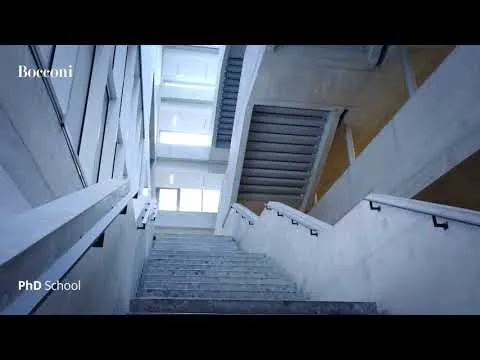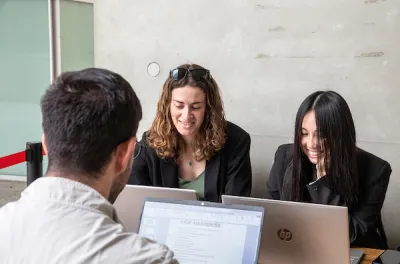PhD
The PhD School coordinates the PhD programs offered by Bocconi University and acts as a point of reference for the University's PhD candidates.
PhD candidates have the opportunity to advance their knowledge and conduct research, with the support of Bocconi Faculty and through exchanges with leading American and European universities.
The Bocconi PhD School is supported through contributions from two major donors.
For years, the ‘Fondazione Romeo and Enrica Invernizzi’ has been philanthropically supporting the Bocconi PhD School through ‘The Invernizzi PhD Financial Aid’, a fund aimed at enhancing the study and research paths of PhD students both in the final phase and – as of a.y. 2024-25 - also in the initial phase.
The choice by ‘Fondazione Romeo and Enrica Invernizzi’ demonstrates a strong commitment that contributes year after year to making Bocconi University and Milan an increasingly attractive research hub for young researchers.
In particular, ‘The Invernizzi PhD Financial Aid’ supports PhD candidates during the year prior to their thesis defense, when they are focused on writing and presenting research papers at conferences to enhance their prospects for top placements in the international academic job market.
Still within the framework of 'The Invernizzi PhD Financial Aid,' in 2024-25 the Foundation’s commitment also extends to first-year PhD students. The Invernizzi Foundation is aware that the costs of moving to Milan and finding suitable accommodation have increased significantly in recent years.
Thanks to the 'Ospitalità PORTUS' program, first-year PhD students receive a scholarship that is higher than the standard amount for other years to better cope with the high relocation costs in Milan.
Starting from the 2025-26 academic year, Tech Europe Foundation (TEF) has been supporting Bocconi PhD programs through the full funding of 8 fellowships. This number is expected to grow in the coming years.
TEF is a non-profit institution promoted by its founding members Fondazione Politecnico di Milano, Bocconi University, ION and FSI. TEF’s goal is to create an ecosystem that fosters collaboration between academic research, companies and startups, integrating entrepreneurial development with scientific innovation. The Foundation aims to establish an open environment where scientists, companies and startups can collaborate and grow together, helping to consolidate Milan as a center of excellence for technological and entrepreneurial innovation.
TEF focuses on fundamental research and creating a critical mass of new companies in the deep tech sector, based on scientific discoveries and technological innovations in areas such as AI, biotechnology, microelectronics, aerospace and renewable energy.

Discover Bocconi PhD School








